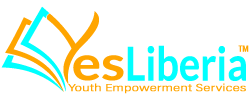Quick Facts About Liberia
- Liberia was one of the more stable African countries until the civil war broke out in 1989.
- Liberia, which is considered to be one of the world’s poorest nations, was one of the most prosperous black republics in the 1950s.
Liberia, officially the Republic of Liberia, is a country in West Africa bordered by Sierra Leone to its west, Guinea to its north and Côte d’Ivoire to its east. It covers an area of 111,369 km² and is home to about 3.7 million people.
Liberia one of Africa’s most culturally rich and diverse countries; from antiquity to the 1700s, many ethnic groups from the surrounding regions settled in the area. But Liberia has always struggled with her double cultural heritage: that of settlers and of Indigenous Africans. This is largely because both freeborn Blacks and former slaves from America settled in Liberia, whose name means “land of freedom,” in the early 1800s.
A Unique History
Portuguese explorers established contacts with Liberia as early as 1461 and named the area Grain Coast because of the abundance of grains of Malegueta Pepper. In 1663, the British installed trading posts on the Grain Coast, but the Dutch destroyed these posts a year later. There were no further reports of European settlements along the Grain Coast until the arrival of freed slaves in the early 1800s.
Liberia, which means “land of the free,” was founded by free African-Americans and freed slaves from the United States in 1820. An initial group of 86 immigrants, who came to be called Americo-Liberians, established a settlement in Christopolis (now Monrovia, named after U.S. President James Monroe) on 6 February 1820. Thousands of freed American slaves and free African-Americans arrived during the following years, leading to the formation of more settlements and culminating in a declaration of independence of the Republic of Liberia on 26 July 1847.
Let’s Fast Forward 142 Years….A Civil Unrest
From 1989 to 1996, one of Africa’s bloodiest civil wars ensued, claiming the lives of more than 200,000 Liberians and displacing a million others into refugee camps in neighboring countries. The Economic Community of West African States (ECOWAS) intervened in 1990 and succeeded in preventing Charles Taylor from capturing Monrovia. Prince Johnson – formerly a member of Taylor’s National Patriotic Front of Liberia (NPFL) – formed the break-away Independent National Patriotic Front of Liberia (INPFL). The bloodshed did slow considerably, but it has not ended. Violent events have flared up regularly since the end of the war.
The State of Liberia Now
Seven years of civil war undid much of what Liberia had achieved. Most of the country’s infrastructure and public buildings were destroyed. Two hundred thousand people were killed, and another 800,000 displaced from their homes. Close to another 700,000 became refugees in neighboring countries. Recent reports from international political, environmental, and humanitarian groups point to Liberia’s sky-high unemployment, continuing human rights violations that have consistently plagued the region.
Today, the Liberian people are just beginning the slow process of recovering from the economic, social, political, and psychological trauma of the war. With your help we can do our part to ensure Liberia can rebuild into a unified sustainable and peaceful nation, and enhance the quality of life of everyone who inhabits the beautiful region.

